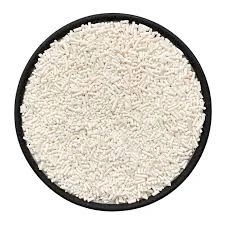
Exploring the Benefits and Uses of Pimaricin as a Food Preservative Alternative
Pimaricin Preservative An Overview
Pimaricin, also known as natamycin, is a naturally occurring antifungal agent derived from the soil bacterium Streptomyces natalensis. It has garnered attention in the food industry as a preservative due to its efficacy in inhibiting the growth of mold and yeast, which are common spoilage agents. This article explores the properties of pimaricin, its applications, regulatory status, and potential health impacts, emphasizing its significance in food preservation.
Properties of Pimaricin
Pimaricin possesses a unique molecular structure that enables it to bind to specific fungal cell membranes, disrupting their integrity. This action prevents the growth and reproduction of various fungal species, making it a powerful tool for extending the shelf-life of perishable products. Pimaricin is particularly effective against *Aspergillus* and *Penicillium* species, which are notorious for causing spoilage in food products such as cheese, cured meats, and sauces.
In addition to its antifungal properties, pimaricin has a low solubility in water, which contributes to its effectiveness as a food preservative without altering the sensory qualities of the food. This characteristic allows products treated with pimaricin to maintain their taste, color, and texture, making it an attractive option for food manufacturers.
Applications in Food Preservation
Pimaricin is widely used in various food applications, especially in the dairy industry, where it is often applied to cheese surfaces to prevent mold growth. It is particularly valuable in the production of soft cheeses, such as Camembert and Brie, where mold is a desirable characteristic when controlled. Additionally, pimaricin is effective in prolonging the shelf life of certain baked goods and processed meats, ensuring that products remain safe and appealing to consumers for longer periods.
Another area where pimaricin excels is in the preservation of fruit-based products. It is commonly used in the preservation of fruit juices and jams to inhibit fungal contamination, which can lead to spoilage and loss of product quality.
pimaricin preservative

Regulatory Status
The safety of pimaricin as a food preservative has been evaluated by various regulatory bodies, including the United States Food and Drug Administration (FDA) and the European Food Safety Authority (EFSA). Both organizations have recognized pimaricin as safe for use in food products, provided that it is used within specified limits. In the European Union, pimaricin is classified as a food additive with the E number E235.
Despite its classification as a safe preservative, regulatory bodies emphasize the importance of adhering to established usage levels to ensure consumer safety. These guidelines are essential for minimizing any potential adverse effects while maximizing the benefits of pimaricin in food preservation.
Potential Health Impacts
Research into the health effects of pimaricin is ongoing, but current evidence suggests that when used appropriately, it poses minimal risk to consumers. Unlike some synthetic preservatives, pimaricin is derived from natural sources, which may appeal to health-conscious consumers seeking clean-label products. However, as with any food additive, there is always a potential for allergic reactions or sensitivities in a small percentage of the population.
It is vital for manufacturers to clearly label products containing pimaricin to inform consumers, allowing individuals with allergies or sensitivities to make informed choices regarding their food consumption.
Conclusion
Pimaricin, as a natural antifungal preservative, plays a crucial role in the modern food industry by extending the shelf life of various products while maintaining their sensory appeal. Its effectiveness against mold and yeast contamination makes it invaluable, particularly in the dairy sector. With robust regulatory support affirming its safety, pimaricin stands as a promising solution to address the challenges of food preservation. As consumers demand safer, more natural food options, pimaricin's role in the preservation landscape is likely to grow, ensuring that food safety and quality continue to meet consumer expectations. The ongoing research into its applications will further illuminate its potential as an essential ingredient in the food industry.
-
Aluminum Hydroxide: Quality Gels & Dried Gel AntacidNewsAug.31,2025
-
Buy High-Quality Trichloroisocyanuric Acid for Sale | TCCA 90% SupplierNewsAug.30,2025
-
Pure Sodium Dichloroisocyanurate Dihydrate | Powerful DisinfectantNewsAug.29,2025
-
Industrial Chemicals: Quality & Purity for Every IndustryNewsAug.28,2025
-
Nitrile Rubber Honoring Strict Production StandardsNewsAug.22,2025
-
Aspartame Ingredients Honoring Food Safety ValuesNewsAug.22,2025
-
Fertilizer for Balanced Plant NutritionNewsAug.22,2025
Hebei Tenger Chemical Technology Co., Ltd. focuses on the chemical industry and is committed to the export service of chemical raw materials.
-

view more DiethanolisopropanolamineIn the ever-growing field of chemical solutions, diethanolisopropanolamine (DEIPA) stands out as a versatile and important compound. Due to its unique chemical structure and properties, DEIPA is of interest to various industries including construction, personal care, and agriculture. -

view more TriisopropanolamineTriisopropanolamine (TIPA) alkanol amine substance, is a kind of alcohol amine compound with amino and alcohol hydroxyl, and because of its molecules contains both amino and hydroxyl. -

view more Tetramethyl Thiuram DisulfideTetramethyl thiuram disulfide, also known as TMTD, is a white to light-yellow powder with a distinct sulfur-like odor. It is soluble in organic solvents such as benzene, acetone, and ethyl acetate, making it highly versatile for use in different formulations. TMTD is known for its excellent vulcanization acceleration properties, which makes it a key ingredient in the production of rubber products. Additionally, it acts as an effective fungicide and bactericide, making it valuable in agricultural applications. Its high purity and stability ensure consistent performance, making it a preferred choice for manufacturers across various industries.





